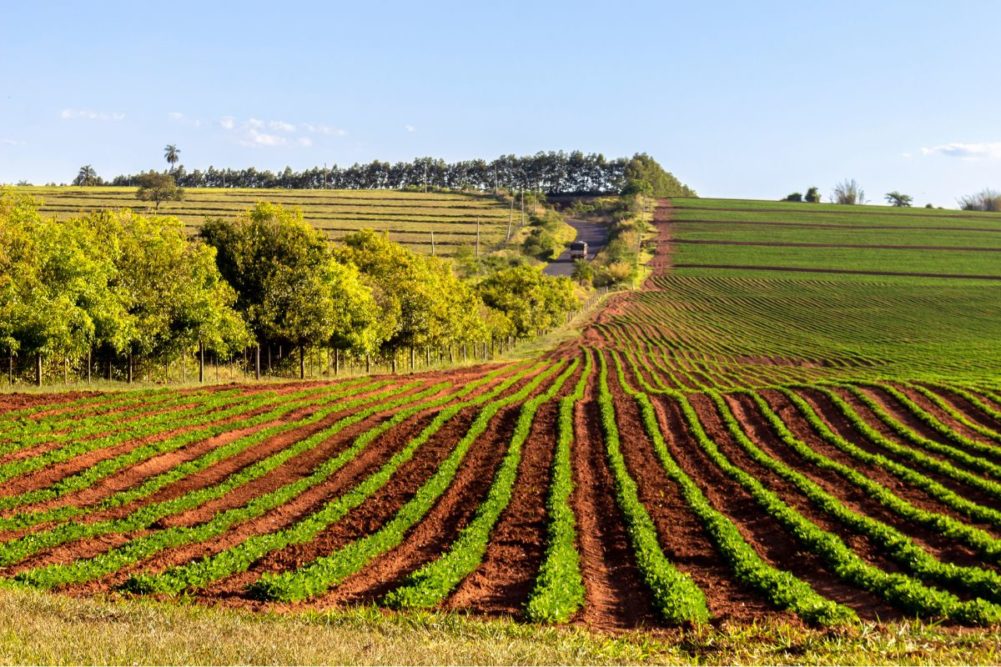BRASILIA, BRAZIL — Ideal weather conditions observed throughout Brazil have increased soybean yields and raised expectations of another bumper crop on increased planted area for 2024-25, according to a report from the Foreign Agricultural Service (FAS) of the US Department of Agriculture.
The FAS increased its forecast for soybean planted area expansion to 47 million hectares for 2024-25, up from the previous estimate of 46.3 million hectares. This is a 2.3% increase from the previous season and in line with the five-year average, the FAS said in its Dec. 27 Global Agricultural Information Network (GAIN) update.
With a larger planted area, the FAS also increased its forecast for 2024-25 soybean production to a record 165 million tonnes, up from 161 million tonnes previously, based on a yield of 3.51 tonnes per hectare. Better-than-average early rainfall coming off a dry El Niño weather pattern will help propel the current marketing year sharply higher from the 152 million tonnes harvested in 2023-24, the FAS noted.
"Most of the major soybean producing areas received favorable rain in November, which encouraged the development and implementation of the crop," the FAS said.
Another key reason cited by the FAS for ongoing soybean yield improvement in Brazil is farmers’ adoption and investment in technology, such as genetically engineered (GE) seeds specifically formulated to be drought resistant.
If expectations are realized, the FAS is forecasting another record for Brazil’s soybean exports with 105 million tonnes to be shipped in 2024-25, easily topping the previous record of 101.8 million tonnes established in 2022-23.
Soybean processing in 2024-25 is seen by the FAS at 56 million tonnes, higher than the original forecast of 55.5 million tonnes. The projection is based on available supplies, as well as an increase in demand for soybean products.
For 2024-25, soy oil in Brazil production is forecast at 12 million tonnes, with domestic oil consumption expected to rise to 10.2 million tonnes.
“In Brazil, soy oil is the main ingredient used in the production of biodiesel,” the FAS said.
“In recent years, biodiesel output surged to meet government-mandated annual biodiesel blend rate hikes.”
The forecast for 2042-25 soybean meal production was revised up slightly to 43.1 million tonnes. Domestic consumption is forecast to increase to 21.3 million tonnes, while exports are estimated at 21.8 million tonnes. The livestock and poultry industries are set for a strong performance in 2025, with poultry, beef and pork production in 2025 to increase by over 2%, reflecting continued strong exports to China and improved domestic demand, the FAS noted.
With strong Chinese demand for Brazilian soybeans, stocks will remain at low levels around 5.6 million tonnes in 2024-25, or about 3.5% of domestic supply.





